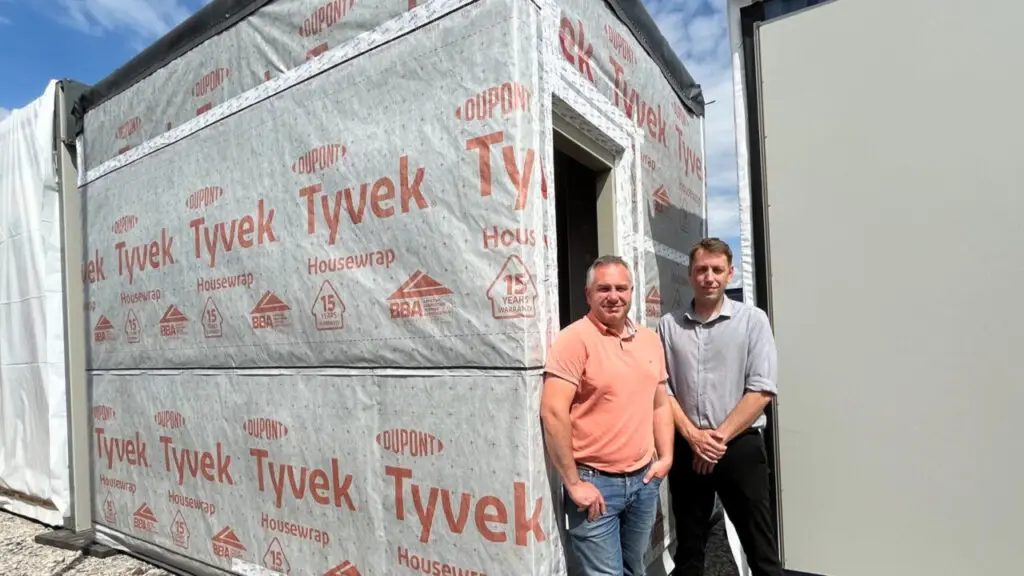A Yorkshire-based construction business has devised a new solution to the overcrowding crisis in prisons. The company has developed modular custodial cells designed to meet governmental standards, providing a feasible, rapid solution to the issue.
These modular cells have undergone thorough testing at the BRE Science Park to ensure they comply with rigorous standards of durability and safety. The units have passed all necessary examinations, demonstrating their reliability and readiness for immediate deployment.
Introduction of Modular Cells
A Yorkshire-based construction business has devised a new solution to the overcrowding crisis in prisons. The company has developed modular custodial cells designed to meet governmental standards, providing a feasible, rapid solution to the issue.
These modular cells have undergone thorough testing at the BRE Science Park to ensure they comply with rigorous standards of durability and safety. The units have passed all necessary examinations, demonstrating their reliability and readiness for immediate deployment.
Addressing Overcrowding
The problem of overcrowding in prisons has been magnified in recent times. Sir Keir Starmer highlighted the ‘shocking’ state of the prisons just after he became Prime Minister, describing the situation as ‘worse than imagined’.
Justice Secretary Shabana Mahmood announced that some prisoners would be released early to ease this burden. Meanwhile, many existing prisons are teetering on the brink of collapse. The new modular cells present a viable alternative to building new prisons or renovating old ones.
Advantages of Modular Construction
The modular cells offer numerous advantages over traditional building methods. They can be deployed quickly and efficiently, avoiding the long construction times and high costs associated with building new facilities or renovating old ones.
A significant advantage of modular construction is its cost and time efficiency. Additionally, the units are inherently more sustainable. Less waste material is produced, and there is greater control over production processes and project management.
Innovative Design and Features
The cells are built using a combination of traditional and modular building practices, incorporating a concrete base and innovative composite materials. They are non-combustible and built to last.
The flexibility of modular construction allows for varied cell sizes, with the smallest measuring 2.6m x 3m. Each unit comes equipped with a shower, toilet, and washbasin. Moreover, units can be stacked or joined together to form larger complexes as needed.
Targeted Prisoner Categories
The cells are specifically designed for Category C prisoners, who pose a lower risk to the public and make up a significant portion of the prison population. This targeted design ensures that the cells meet specific security criteria while providing a humane environment for inmates.
The nature of these modular units means they can be easily expanded or relocated as required, offering flexibility to respond to changing population pressures across the country.
Compliance and Security
Integra’s modular cells comply with government technical requirements for cells accommodating Category C prisoners. They meet stringent ‘breach and ligature criteria’, ensuring the safety and security of the inmates.
The units have been subjected to rigorous testing to ensure they meet all relevant government regulations. These tests have confirmed the cells’ durability and security, making them ready for deployment.
Government Plans and Modular Solutions
Before the General Election, the Ministry of Justice had plans to build six new prisons to create an additional 20,000 places. The new government has reaffirmed its commitment to building more prisons, though specific details remain undisclosed.
The introduction of modular cells could complement these plans, offering a faster, more cost-effective solution to the overcrowding issue. These units can be quickly deployed to provide immediate relief to overcrowded prisons.
Conclusion
The development of these modular cells by a Yorkshire-based company presents a promising solution to the ongoing prison overcrowding crisis. With the ability to be deployed rapidly and efficiently, these units could play a crucial role in addressing the issue.
In summary, the innovative design, combined with rigorous compliance and flexibility, positions these modular cells as a viable alternative to traditional prison construction methods.
In conclusion, the development of modular prison cells by the Yorkshire-based construction company offers a practical and immediate solution to the ongoing issue of prison overcrowding. These cells are not only cost-effective and quick to deploy but also meet stringent safety and durability standards. By providing a sustainable and flexible alternative to traditional construction, these modular units could play a crucial role in modernising the prison system and addressing capacity issues efficiently.

